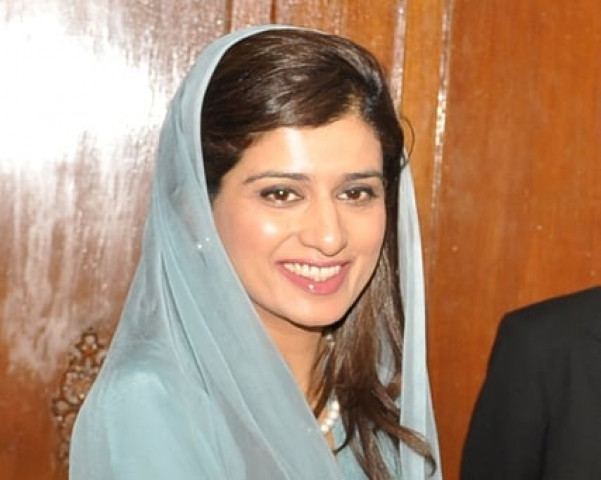Cease drone strikes: Khar hopes US ‘listening’ will improve
FM says military now has less sway over foreign policy in Pakistan.

“On drones, the language is clear: a clear cessation of drone strikes,” Foreign Minister Hina Rabbani Khar said.
“I maintain the position that we’d told them categorically before. But they did not listen. I hope their listening will improve,” she told Reuters in an interview with Reuters.
Khar’s sharp comments on the drone strikes came ahead of a two-day visit to Islamabad by the United States’ special envoy for Afghanistan and Pakistan, Marc Grossman.
Khar said other methods, besides drone strikes, should be used to take out militants in the border region between Afghanistan and Pakistan.
“We have to look at effective tools which are mutually acceptable. The cost of using tools which are not mutually acceptable is far, far too high,” she said.
New equilibrium
In a separate interview, Khar told Reuters that Pakistan’s military now has less sway over the country’s foreign policy, and a new power equation is emerging within Pakistan.
“I want you to also understand that things have changed in Pakistan,” the foreign minister said.
“I think this overbearance of the role of the military in the foreign policy of Pakistan is something which will recede as time passes,” she added.
“I think all institutions in Pakistan are realising that there is a place and role for every institution,” said Khar. “And it is best to serve Pakistan’s interests that each of the institutions remains within the boundaries of the roles which are constitutionally defined. It’s a new sort of equilibrium,” she added.
“As far as the new equilibrium ... you have consistent four years of democracy, it’s the longest term a democratic governments has had in Pakistan,” said Khar.
Robust democracy
She pointed to the reaction to a Nato cross-border raid in November that killed 24 Pakistani soldiers and plunged relations with the US to a low point as one sign that civilian leaders have a bigger say in policy. A Pakistani parliamentary committee reviewed ties with Washington and demanded a halt to US drone aircraft strikes.
“It is not the first time that foreign policy has been discussed in parliament … But is it not the first time that relations with the United States and other important countries were put on hold until the parliament gave a green signal?” Khar said.
She added that the government’s approach to India suggested Pakistan’s democracy was becoming more robust and the military’s grip on policy had loosened.
In the face of some domestic opposition, Islamabad last November vowed to grant India most-favoured nation status, which will end restrictions that require most products to move via a third country.
“Don’t underestimate the importance of what this government did with trade with India. Since 1965 there was no political or military government that could open up trade with India. And it was considered a no-go area,” said Khar. “And that to me shows one the maturity of democracy, the maturity of views, and the maturity of the decision-making exercise in Pakistan,” she added.
Published in The Express Tribune, April 27th, 2012.



















COMMENTS
Comments are moderated and generally will be posted if they are on-topic and not abusive.
For more information, please see our Comments FAQ